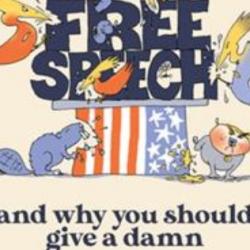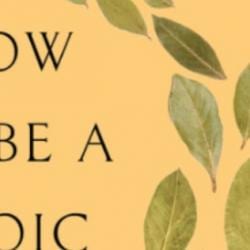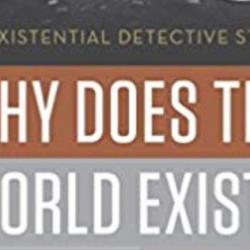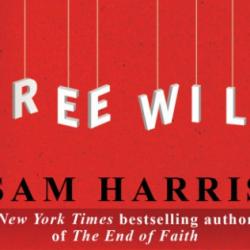An interesting read from author and astrophysicist Mario Livio. Unlike the title’s suggestion, the text is not a metaphysical deep dive on God and the applicability of mathematics. While this may be disappointing, it is important to consider the author’s perspective. Livio himself is not religious, though he has respect for those with a religious worldview. The tone of the text is agnostic as his interests are not in metaphysics/philosophy of religion, but mathematics. There is no cross-comparison of theological realism/irrealism and mathematical realism/irrealism. The focus is on the latter – a back and forth on the history and philosophy of mathematics as relates to the “is mathematics invented or discovered?” question. To that end, in prompting the problems to the “mathematics-just-invented” and “mathematics-just-discovered” views, the book succeeds.
The first page has a very fitting opening question from Einstein, “How is it possible that mathematics, a product of human thought that is independent of experience fits so excellently the objects of physical reality?” Restated by Livio: “How was mind literally born out of matter?” (Page 3). He dives right into the classical Platonic description of “Forms”, the abstract realm where these mathematical truths may lie and how tempting this view is, given the fact that descriptive tools for the empirical science appear to be abstract concepts. To that end, the universe is:
“Either governed by mathematics or, at the very least, susceptible to analysis through mathematics.” (Page 7)
But how would the universe be governed by mathematics? How could numbers have causal powers on objects? Perhaps it would be easier to account for mathematics as just a language, a cognitive creation? Linguist George Lakoff, psychologist Rafeal Nunez, and neuroscientist Jean Pierre Changeux take this view – positing mathematics as language used to describe patterns of the world; a fair counter to a Platonic ontology But, then again, the predictive power and accuracy of mathematics is baffling.
Luvio nicely poses some problems on both sides of the debate and takes us back to Pythagoras and his followers, as well as the Babylonians and Egyptians. Unlike the Babylonians and Egyptians who utilized mathematics for practical purposes, the Pythagoreans were the founders of pure mathematics which they saw as the architecture of the cosmos. To them, material objects, abstract and universal concepts like morality were just numbers. Mathematics to them, was no doubt discovered. Even further, and to Livio’s point, “the Pythagoreans literally embedded the universe into mathematics. In fact, to the Pythagoreans, God was not a mathematician – mathematics was God!” (page 28). For Plato, the Forms were evidence for the supremacy of the intellect which had access to the eternal and unchanging realm. In Plato’s words, from The Republic:
“Further you know that they make use of visible figures and argue about them, but in doing so they are not thinking about these figures but of the things they represent; thus it is the absolute square and the absolute diameter which is the object of their argument, not the diameter which they draw… the object of the inquirer being to see their absolute counterparts which cannot be seen otherwise than by thought.”
Is there an ideal, non-physical, abstract world of universals in which we draw objective truths such as mathematics and morality? Even if such a Platonic realm exists, further questions remain:
“Does Platonism actually explain the ‘unreasonable effectiveness’ of mathematics in describing our world. Not really. Why should physical reality behave according to laws that reside in the abstract Platonic world? … We have to accept that even if we were to embrace Platonism, the puzzle of the powers of mathematics would remain unsolved.” (page 39).
But could there really exist such an ontological realm of abstract objects? With that, how could our intellect tap into Platonic realm and what of their causal powers on this world? This parallels JL Mackie’s argument against ethical realism. Objective values would be quite “queer”, they would be “entities or qualities or relations of a very strange sort, utterly different from anything else in the universe”.[1] Fair, but then again, the accuracy and predictive power of mathematics is quite queer, prompting Eugene Wigner’s famous question on “the unreasonable effectiveness of mathematics”.[2] Contrary to Mackie’s Argument from Queerness is Quine’s Indispensability Argument, that mathematics is indispensable to our best scientific theories, so we ought to be committed ontologically.
“Even if logic had been deeply embedded in our ancestor’s brains, it is difficult to see how this ability could have led to abstract mathematical theories of the subatomic world, such as quantum mechanics, that display stupendous accuracy… Researchers use mathematical models to product new phenomena, new particles, and the results of never-before-performed experiments and observations. What puzzled Wigner and Einstein was the incredible success of the last two processes. How it is possible that time after time physicists are able to find mathematical tools that not only explain the existing experimental and observational results, but which also lead to entirely new discernment and new predictions?” (page 246-247).
To expand this topic into the actual intersection of God and mathematics (as Livio does not), I share philosophers Timothy Williamson and Alex Rosenberg view that “finding a place for mathematics” poses a major philosophical challenge for naturalism. As William Lane Craig highlights, the naturalist committed to mathematical realism would be admitting that the unreasonable effectiveness of mathematics is – to use philosopher of mathematics Mary Leng’s words – “a happy coincidence”.[3] But that seems deeply dissatisfying. Perhaps “happy coincidence” naturalism and Platonic realism are both dissatisfying (my own personal view).
Livio presents the many challenges to Platonic realism (the other realm of mathematical objects) and provides another option that “mathematical structures are in fact a real part of the natural world” (page 228). Here he discusses Max Tegmark’s argument, summarized by his book title, Our Mathematical Universe – that the universe itself is ultimately an abstract mathematical object the fundamental level. If true, the unreasonable effectiveness problem is solved. At the same time, it proves too much, especially for naturalists. How, given naturalism, is the natural world ultimately an abstract mathematical object? Livio (somewhat disappointingly) doesn’t address this point, though he does mention Tegmark’s theory is question-begging – mathematics being discovered is just assumed by Tegmark. To Livio, Tegmark’s mathematical universe is unconvincing.
Perhaps mathematics being an invention holds the most promise after all. Luvio surveys the thought of biologists, neurobiologists, and cognitive scientists, as well as landmark mathematician Michael Atiyah, that mathematics is innate to the human mind, an object of our thought, an ability to abstract “elements of the physical world”. The straight forwardness of mathematics being a human invention offers some attraction. But, according to Livio, “just an invention” is also short sided, as he still sees a large component of mathematics being discovered.
Livio now shifts to his central argument – that mathematics is not in the Platonic realm or in the natural world. But neither, is it completely invented. In his view,
Mathematics is a combination of invention and discoveries. The axioms of Euclidian geometry as a concept were an invention, just as the rules of chess were an invention. The axioms were also supplemented by a variety of invented concepts, such as triangles, parallelograms, ellipses, the golden ratio, and so on. The theorems of Euclidian geometry, on the other hand, were by and large discoveries; they were the paths linking the different concepts… Typically, the concepts were inventions. Prime numbers as a concept were an invention, but all the theorems about prime numbers were discoveries” (238).
He continues:
‘Is mathematics created or discovered?’ is the wrong question to ask because it implies that the answer has to be one or the other and that the other two possibilities are mutually exclusive. Instead, I suggest that mathematics is partly created and partly discovered. Humans commonly invent mathematical concepts and discover the relations among those concepts. Some empirical discoveries surely preceded the formulation of concepts, but the concepts themselves undoubtedly provided an incentive for more theorems to be discovered” (242).
Livio continues to assert the attraction of combining mathematics as a discovery and invention. He does a very nice job presenting some philosophical problems posed at the discovered and invented camps. A shortcoming of the text may very well be its title. One would have expected more on metaphysics in general, not just the question of mathematics as a discovery or invention. If mathematics is discovered (Platonic-separate-mathematical-realm or Tegmark-type-universe-is-math), invented, or both (Livio’s theory) what does that say about the ultimate nature of reality? No such aim is taken, which again, is perhaps unsurprising given Livio’s agnostic tone and specific focus on mathematics. Nevertheless, such avoidance is found wanting with such a sensational title.
Another major disappointment for me was that an Aristotelian view of mathematics was not given a hearing. Interestingly, it would somewhat close to the partly discovered, partly invented view Luvio shares (though Livio’s description ultimately would miss the mark). For the Aristotelian, nature is hylomorphic, an irreducible combination of matter and form. Thus, the underlying mathematical order of physical objects poses no problem, nor does the unreasonable effectiveness of mathematics. Abstracting mathematical form from nature (not to be confused with “inventing”) is to be expected because there is form in nature (not to be confused with the supernatural realm). For hylomorphists, nature is a form and matter – you cannot separate one from the other (or reduce it to just form like Tegmark). There is mathematical ontology in matter (again, not in some Platonic realm, nor just invented by our minds). Like with morality, we don’t invent it. There is intrinsic value in nature. We have the ability to abstract this knowledge (epistemology) from nature because it’s in nature (ontology). In philosopher and mathematician James Franklin’s words: “some philosophers think maths exists in a mysterious other realm. They’re wrong. Look around: you can see it.” Such a view explains the unreasonable effectiveness of mathematics by implying the minds ability to grasp universals (immaterial, necessary truths) from particulars (matter). Well and good for those empathetic to such an view, but Aristotelian realism, as Franklin suggests, “stands in a difficult relationship with naturalism”.
In this vein, Aristotelian realism would certainly stand at odds with Livio’s naturalism, but also very much appreciate the insights on the problems of reducing the unreasonable effectiveness of mathematics to just discovered or just invented. Thus, rather than Livio’s partly discovered/partly invented theory, I would assert an Aristotelian abstraction of universals from particulars in matter.
All in all, despite it’s shortcomings, Livio’s text was enjoyable.
Notes:
[1] Ethics: inventing right and wrong. (1977, p. 38)
[2] “The Unreasonable Effectiveness of Mathematics in the Natural Sciences,” in Communications in Pure and Applied Mathematics 13/1 (New York: John Wiley & Sons, 1960).
[3] Mathematics and Reality (Oxford: Oxford University Press, 2010), p. 239.













